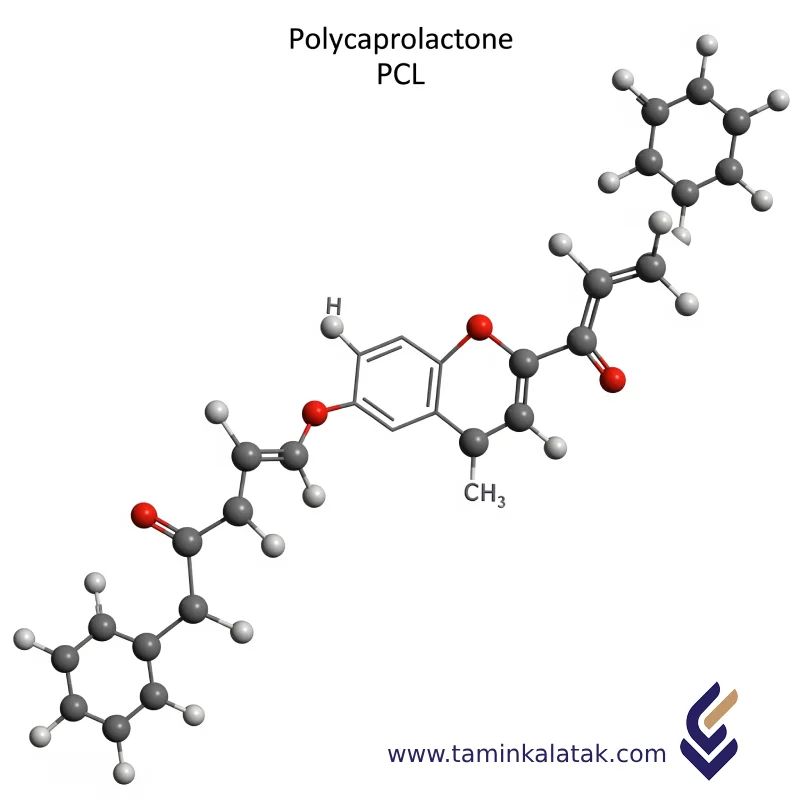Polycaprolactone (PCL) is an organic, biodegradable polyester produced through the ring-opening polymerization (ROP) of the monomer ε-caprolactone.
Structure of Polycaprolactone (PCL)
The chemical formula of its repeating unit is:
(C₆H₁₀O₂)ₙ
PCL has a semi-crystalline chain structure with flexible polymer chains and a relatively low melting temperature (around 60°C), allowing it to be easily blended with other polymers and reinforcing materials.
Properties of Polycaprolactone
-
Low melting temperature: approximately 58–63°C
-
Glass transition temperature (Tg): around –60°C
-
Excellent processability: suitable for injection molding, extrusion, and 3D printing
-
Biodegradability: decomposes under environmental or industrial composting conditions
-
Biocompatibility: suitable for medical and pharmaceutical applications
-
High flexibility: retains elasticity even at low temperatures
Applications of Polycaprolactone
-
Medical and pharmaceutical uses: absorbable sutures, drug delivery systems, tissue engineering scaffolds
-
3D printing and rapid prototyping: due to its low melting temperature and precise printability
-
Biodegradable products: compostable bags, packaging, and films
-
Polymer blending: used as an additive to improve flexibility or lower the melting point of other polymers such as PLA
Advantages of Polycaprolactone
-
Biodegradable and environmentally friendly
-
Flexible even at low temperatures
-
Excellent compatibility with other polymers
-
Non-toxic and safe for medical applications
-
Good dimensional stability during processing
Disadvantages of Polycaprolactone
-
Relatively high production cost compared to common polymers
-
Low melting temperature, making it unsuitable for high-temperature applications
-
Slow degradation rate under natural conditions (without industrial composting)
-
Lower mechanical strength compared to some thermoplastics such as PET or ABS







